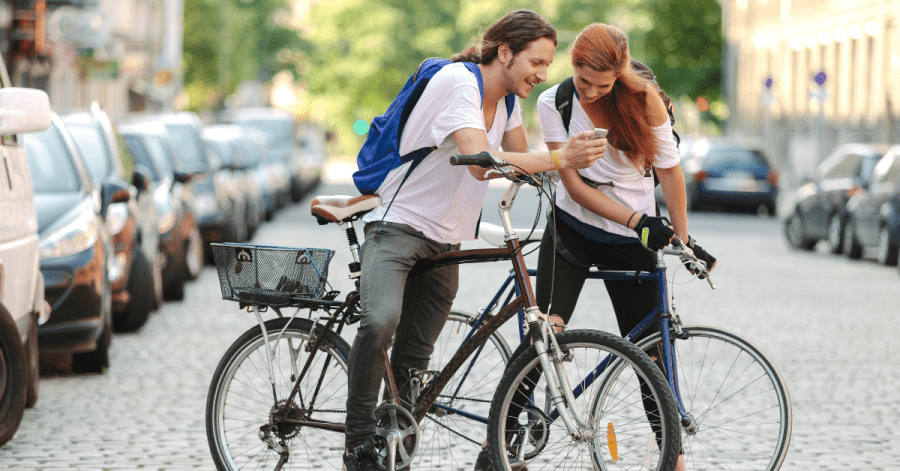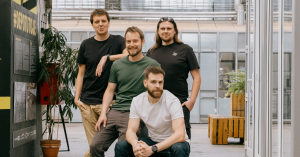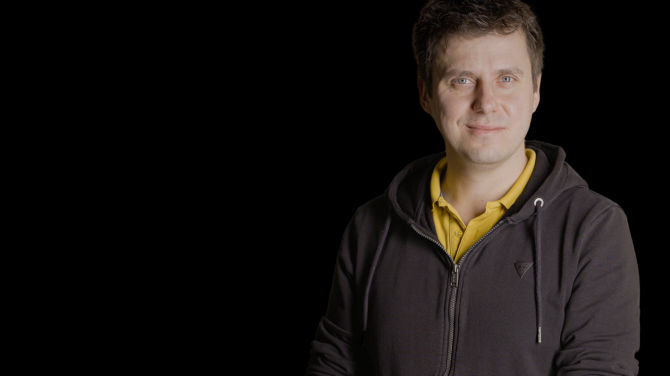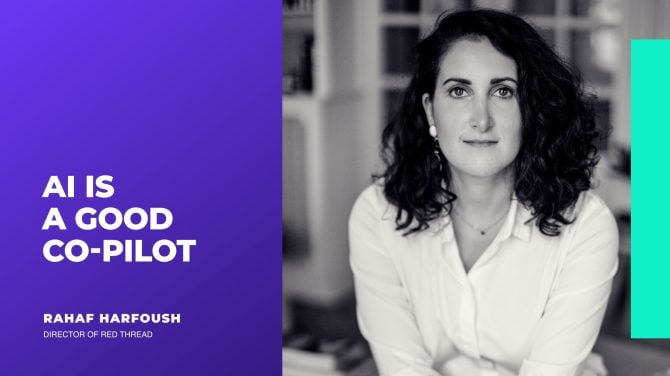• Over the week-end, Bulgarian mobility startup Cyrcl launched the first free-floating bike sharing app and service available in Bulgaria (Ed.note with no pre-specified pick-up and drop-off locations). Their first stop: Sofia.
• The startup received an initial investment of €100K from investors Julian Zahariev and Kamen Yonchev, a member of the angel club CEO Angels Club.
• The Cyrcl service starts with 50 bicycles and covers several densely populated areas in Sofia.
With the coming of spring, Sofia residents have more opportunities to move around the city on a bike. For €0.077 (BGN 0.15) per minute and a maximum fee of €9.22 (BGN 18) per day, urban dwellers can rent a bike through the Cyrcl app. One can look for the nearest bike on the map in the app, and leave it in any parking space around the city after use.
“Our vision is to create a better urban environment through shared mobility. Having the right people by our side, minimizing air pollution, staying in shape – these are the three main pillars that help us reimagine the world around us. That’s why we are building Cyrcl – an alternative, affordable, sustainable, and flexible transport that also promotes a healthy lifestyle,” shares Enriko Marinov, Executive Director of Cyrcl.
After starting its operations in Sofia, the company aims to expand to other cities in Bulgaria and the region.
The journey of Cyrcl
When asked what differentiated their solution from others in front of investors, Enriko shares that the first asset was the strong and bold team.
“We took part in the Founder Institute accelerator in 2021, and our company succeeded in becoming a finalist. Only about 30% of the startups survive during this 4-months program,” he adds.
According to the founders, Cyrcl is the first bike sharing app in Bulgaria to operate on a free-floating model. This entails higher risk but can potentially yield equally higher reward.
“Last but not least, we have managed to establish great relationships with all our suppliers, and have negotiated terms that allow us to aim for a profitable business model. Many are aware that this is not an easy task in countries with lower purchasing power. Still, the burden of proof regarding profitability lies on our shoulders,” Enriko adds.
For the rest of the year, the team plans to at least double the fleet and expand the operating area to include residential areas outside the city center, thus positioning the service as an alternative and a complementary service to other modes of transport.
In the longer term, they aim to enter other cities in Bulgaria and the region, as well as to provide a complete micro-mobility solution.
Shared urban mobility in Southeast Europe with focus on Bulgaria
The founder of Cyrcl shared that they have drawn inspiration from other countries, where this type of service is starting to become a preferred way to get around the city.
The global bike sharing app market is projected to grow at a CAGR of 14% between 2020-2027, up to $6.98 billion. It is a highly fragmented market, with numerous startups and regional players. Europe is growing the fastest, expected to reach 10-20 vehicles per 1000 residents in the next five years in the big cities.
In Southeast Europe, shared mobility services emerge as an alternative to historical challenges with urban transportation, including incomplete implementation and enforcement of national transport laws, a strong dominance of cars in the markets, and a cultural preference for vehicle ownership.
Fortunately, the European agenda, requiring cities to implement sustainable and smart mobility strategies in line with the Green Deal targets by 2050, has been transposed into National Recovery and Resilience Plans budgets in the region, which will influence the future of the cities.
Bulgaria’s plan, for instance, will direct 41.8% of its total of €6.8 billion allocation towards the green transition, including initiatives for sustainable urban mobility.
There are several other local market players in the shared mobility space encouraging this transition, including electric car sharing company SPARK, electric scooter sharing local players such as SHAREASCOOT and Hobo, as well as global players like Lime and Bird, and bike rental companies like Sofia Bike.








